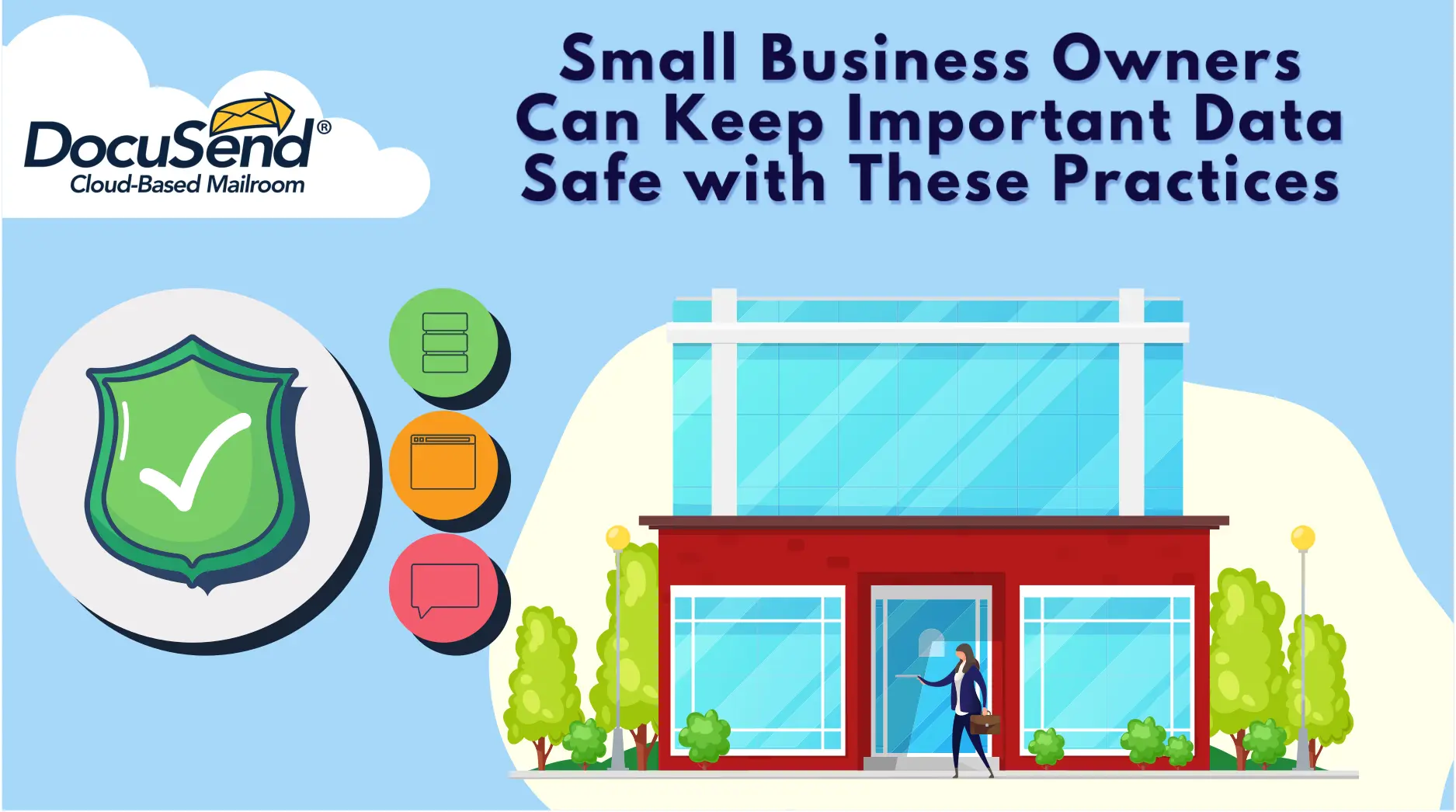Small Business Owners Can Keep Important Data Safe with These Practices

Protecting customer data is an essential part of running a business of any size, yet small business owners face a few extra challenges when it comes to keeping sensitive information safe. Some lack the right tools or believe they can’t afford them, while others underestimate the threat that cyberthieves and hackers pose due to their size. Unfortunately, when data is breached and exposed, the effects hit both the customers and the business owners, so it’s crucial to take steps to keep that info protected. The good news is, there are several tactics you can use to ensure your data is under wraps at all times; using tools like DocuSend is a great start, as it allows you to send mail and email from one cloud-based platform without fear of exposure.
Use this guide to create a cybersecurity strategy for your small business today:
Put a plan in place
Before you can take measures to keep your data safe, it’s important to create a plan for retrieving info and recovering in the event that a cyberattack does occur, since they can happen even when you’re well prepared. An effective plan will help you figure out which applications are a priority as well as assign the individuals who need to be part of the recovery efforts; it will also help you break down a timeline, as time is of the essence when you’re dealing with a cyberattack. Along with a defense strategy, a good recovery plan will help you improve data protection and give you peace of mind.
Get the right training
Ready to come up with a defense strategy that works? Learning all you can about malware, logic, architecture and systems, data structures, AI, and computer theory is a great start, so consider going back to school to pursue a degree in computer science. Not only will this sharpen your IT skills and give you the confidence you need to protect your most sensitive information, it will also allow you to share your knowledge with your employees and ensure that they receive the best possible training.
Keep your invoices secure
When it comes to training your employees on cybersecurity, it’s important to integrate ways for them to keep payments and invoices safe from prying eyes. Using the right tools is a great start, so look for an online invoice generator that allows you to customize a premade template with your business’s logo and other branding; it should also allow you to download the invoice in whichever format you like. Encrypting a PDF will keep unauthorized users from gaining access, so that only you, your employees, and your customers will be able to see the sensitive info within.
Up your password game
Another crucial way to keep your employees alert and on-task when it comes to secure data is to train them on how to handle passwords. While only essential employees should have access to this info, it’s still important to ensure they understand that sharing or writing down passwords is forbidden. Create strong passwords that include several letters, numbers, and symbols, and never reuse old ones. It’s also a good idea to change passwords every month or so, although you can do it more frequently if you’ve recently had some employee turnover. You can also utilize a password tool that will help you manage them all.
Keep devices secure
If your business uses phones, tablets, or other devices, they should be kept as secure as your passwords. Lock them up in a cabinet that only upper management has access to, and create a sign-out sheet that everyone must use. You’ll also want to ensure that any data saved on these devices is encrypted, as it will be vulnerable anytime the equipment is outside the building. Obviously, these devices should also require passwords to use, and these should be changed often.
Use a secure network
Those devices, your phones, and your computers will all be using the same network, so it’s important to invest in a private one that no one else has access to. Not only that, you’ll want to ensure that you have the right network for your needs as your business continues to grow and require more storage and speed. Learn more about different network aspects and how they work so you can be prepared for any issues down the road.
Update your software
Unfortunately, even having the best network won’t do much good if you don’t have the right software that’s updated often. Antivirus and antimalware tools are essential, but these have frequent updates that need to be downloaded and maintained. Stay on top of these updates or delegate the job to someone responsible, and make sure you understand exactly what the software does and doesn’t do before installing it, since not all programs are designed the same.
Work with companies you trust
Whether it’s antivirus software or a third-party website host, you’ll want to make sure you work with companies that you trust. Not only can bad management on their part come back to haunt you, your business will also take a hit if they suffer a data breach on their end. Do your research as thoroughly as possible before signing up with anyone else, and think carefully about how much of your customers’ information you’re sharing with them.
Protect hard copies
Finally, it’s crucial to remember that private or sensitive data doesn’t only stay online; as a small business, you likely have hard copies of paperwork such as invoices and contracts, and this info needs to be kept as secure as the digital data is. If you haven’t already, set up a filing system that keeps things organized and under lock and key, and make sure that only employees who need access to that data can have it.
Keeping your company’s data safe is essential, and making sure that your customers’ information is secure will help you avoid costly legal issues and time-consuming recovery efforts. By taking the steps mentioned in this guide, you can do both and ensure that your business’s reputation remains stellar.
Have questions about how a cloud-based mailroom works? Get in touch with DocuSend today.

